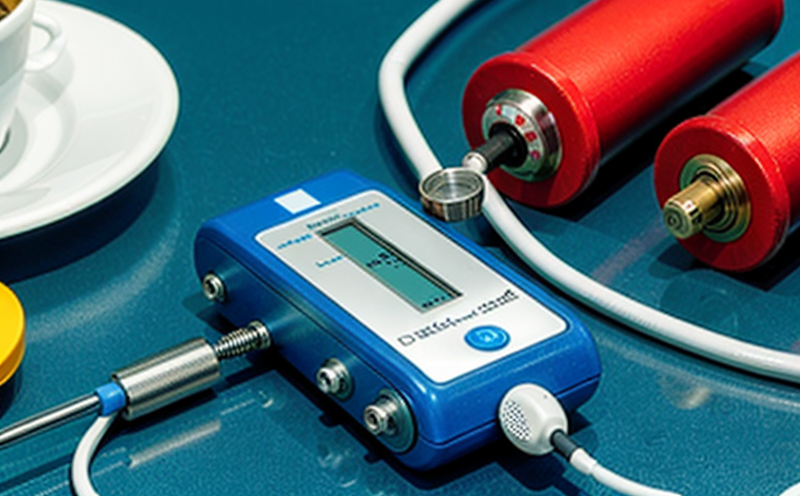Testing medical devices for shock resistance during drop events
The Importance of Testing Medical Devices for Shock Resistance during Drop Events A Crucial Service Provided by Eurolab
In the ever-evolving world of medical technology, devices are becoming increasingly sophisticated and portable. This shift has led to a significant increase in the number of medical devices being used outside of clinical settings, such as in patient homes, hospitals, and emergency response situations. However, this increased mobility also brings about new challenges, particularly when it comes to ensuring the durability and safety of these devices.
One critical aspect of medical device testing is evaluating their resistance to shock during drop events. A sudden impact can cause a device to malfunction or even fail catastrophically, leading to patient harm or even death. In this article, we will delve into the importance of testing medical devices for shock resistance during drop events and highlight the benefits of utilizing Eurolabs laboratory services.
What is Testing Medical Devices for Shock Resistance during Drop Events?
Testing medical devices for shock resistance during drop events involves simulating a devices exposure to impact, typically by dropping it from a specific height. This process aims to determine whether the device can withstand the forces generated by a sudden fall without sustaining damage or malfunctioning.
Why is Testing Medical Devices for Shock Resistance during Drop Events Essential?
The consequences of a medical device failing due to shock resistance issues can be severe and far-reaching. Some of the key reasons why testing medical devices for shock resistance during drop events is essential include
Patient Safety Medical devices are designed to improve patient outcomes, not put them at risk. Ensuring that these devices can withstand minor accidents or mishaps is crucial for maintaining patient safety.
Regulatory Compliance Most medical device regulatory bodies, including the FDA and EU-MDR, require manufacturers to demonstrate that their products can withstand typical use conditions, including impacts and drops.
Reduced Liability By testing your devices for shock resistance, you can mitigate potential liability risks associated with product failures.
Benefits of Using Eurolabs Testing Services
Eurolab offers a comprehensive range of testing services for medical devices, including impact and drop tests. Some of the key benefits of using our laboratory services include
Expertise Our team of experienced engineers and technicians has extensive knowledge of medical device testing, ensuring that your products are evaluated to the highest standards.
Customized Testing Solutions We offer customized testing solutions tailored to your specific needs, including bespoke test protocols and reporting formats.
State-of-the-Art Facilities Our laboratory is equipped with cutting-edge equipment, including high-speed cameras and force sensors, allowing us to accurately measure and record drop events.
Key Benefits of Testing Medical Devices for Shock Resistance during Drop Events
Here are some key benefits of testing medical devices for shock resistance during drop events
Improved Product Reliability By identifying potential weaknesses in your products, you can implement design improvements and ensure that they meet regulatory requirements.
Reduced Costs Conducting thorough testing upfront can save you money in the long run by reducing the need for costly redesigns or product recalls.
Enhanced Credibility Demonstrating a commitment to quality and safety through rigorous testing can enhance your companys reputation and credibility with customers, partners, and regulatory bodies.
QA Frequently Asked Questions about Testing Medical Devices for Shock Resistance during Drop Events
Here are some frequently asked questions and answers related to testing medical devices for shock resistance during drop events
Q What types of medical devices require shock resistance testing?
A Any medical device that is portable or used outside of a clinical setting, such as insulin pumps, defibrillators, and oxygen concentrators.
Q How do you simulate a drop event in your laboratory?
A We use specialized equipment, including impact hammers and force sensors, to recreate the forces generated by a drop event. Our team also uses high-speed cameras to capture and analyze the test results.
Q Can I request customized testing protocols for my medical devices?
A Yes, we offer customized testing solutions tailored to your specific needs. Please contact us to discuss your requirements.
Conclusion
In conclusion, testing medical devices for shock resistance during drop events is a critical aspect of ensuring patient safety and regulatory compliance. By utilizing Eurolabs laboratory services, you can rest assured that your products are evaluated to the highest standards, reducing potential liability risks and enhancing your companys reputation.
Dont compromise on product quality or patient safety choose Eurolab for your medical device testing needs.




